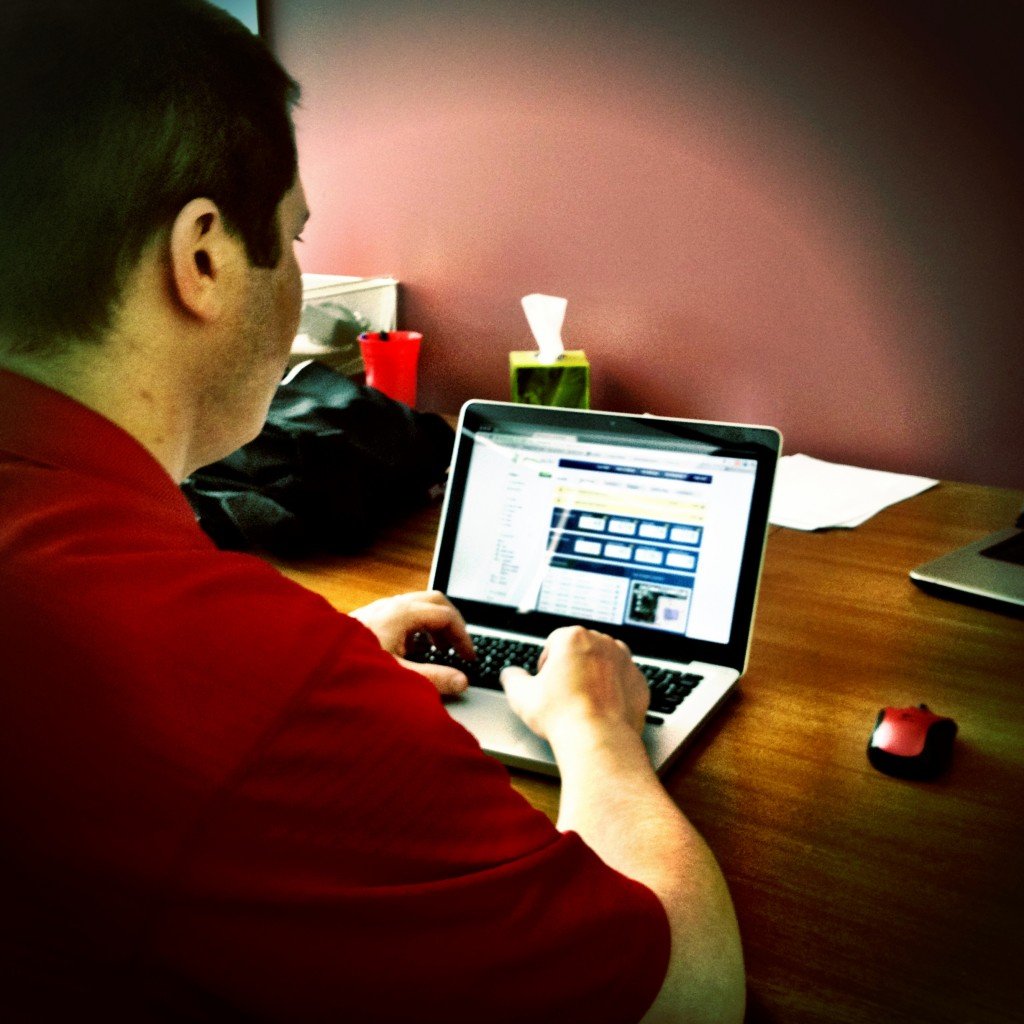Parents shouldn’t monitor their children’s internet use because it hinders their digital independence and privacy online, restricting their ability to develop crucial skills and knowledge for the digital world. Many experts argue that excessive monitoring can create a lack of trust between parents and children, which can strain the parent-child relationship and impede open communication.
Additionally, an absence of monitoring allows children to explore the internet autonomously, enabling them to learn critical thinking, problem-solving, and decision-making skills. Giving children the opportunity to navigate the online world independently fosters their personal growth and facilitates their understanding of online risks and responsible internet usage.
However, it is essential for parents and guardians to educate children about online safety and provide guidance when necessary.
The Importance Of Privacy In Child Development
Privacy plays a crucial role in a child’s development, as it allows them to explore and learn independently. Parents should refrain from monitoring their children’s internet use excessively, as it can hinder their curiosity, creativity, and ability to navigate the online world responsibly.
By allowing privacy, parents can foster a sense of trust and empowerment in their children.
Privacy is an essential aspect of a child’s development when it comes to navigating the online world. By allowing children to explore the internet without constant monitoring from their parents, several key benefits can be realized. Let’s explore why parents shouldn’t monitor their children’s internet use and how it contributes to their development and well-being.
Promotes Independence And Decision-Making Skills:
- Encourages self-reliance: Allowing children to make their own choices and take responsibility for their online activities promotes independence and builds confidence in their decision-making abilities.
- Develops critical thinking skills: Without constant surveillance, children have the opportunity to develop their critical thinking skills by evaluating the content they encounter online independently.
- Enhances problem-solving abilities: When children encounter challenges or potentially harmful situations online, giving them the space to resolve these issues on their own helps cultivate their problem-solving skills.
Fosters A Sense Of Trust And Respect In The Parent-Child Relationship:
- Establishes open communication: Granting children privacy shows that parents trust them, fostering open and honest communication between parents and children. This creates a safe environment for children to share their online experiences and seek support when needed.
- Respects their personal space: Respecting a child’s privacy demonstrates respect for their individuality and personal boundaries. It creates a sense of autonomy and encourages them to develop a healthy relationship with technology.
- Builds trust: Trust is the foundation of any relationship. Allowing children to have privacy online not only strengthens the trust between parents and children but also teaches children to trust their own judgment.
Encourages Responsible Online Behavior:
- Instills self-regulation: When children have the freedom to explore the internet independently, they develop self-regulation skills. They learn how to manage their time online, make responsible choices, and prioritize their activities.
- Promotes digital citizenship: Allowing children the space to make their own online decisions helps them understand the consequences of their actions and promotes responsible digital citizenship. They learn to navigate the online world with integrity and respect for themselves and others.
- Promotes a healthy relationship with technology: Granting privacy enables children to develop a balanced and responsible relationship with technology. They learn to use the internet as a tool for learning, entertainment, and socialization while being mindful of their well-being.
By prioritizing privacy in a child’s online experience, parents can support their development while fostering trust, responsibility, and independence. It’s important to strike a balance between monitoring and providing privacy, ensuring that children navigate the online world safely while also allowing them the freedom to explore and learn on their own.
Empowering Children To Navigate The Internet Safely
Empower your children to safely navigate the internet without the need for constant monitoring. Give them the necessary knowledge and tools to make responsible online choices and protect themselves from potential dangers.
Teaching critical thinking and digital literacy skills:
- Foster a sense of awareness: Encourage children to question the validity of information they come across online. This can be done by teaching them to fact-check using reliable sources and recognizing signs of misinformation or fake news.
- Developing critical thinking skills: Help children think critically about the content they encounter online. Teach them to analyze, evaluate, and question the credibility and intent behind the information they consume.
- Understanding digital footprints: Educate children about the permanence of their online presence and the potential consequences of their actions. Teach them to consider the implications of their online behavior and the importance of maintaining a positive digital footprint.
Encouraging open communication about online experiences:
- Building trust: Create an open and non-judgmental environment where children feel comfortable discussing their online activities and experiences. Show genuine interest and listen actively without resorting to unnecessary surveillance.
- Discussing online risks: Initiate conversations about potential dangers and risks that may exist online, such as cyberbullying, inappropriate content, or online predators. Help children develop strategies to handle these situations with confidence and seek help if needed.
- Supporting emotional well-being: Be attentive to any signs of distress or discomfort related to your child’s online experiences. Encourage them to express their feelings and provide guidance on how to cope effectively with online challenges.
Providing guidance on privacy settings and online safety measures:
- Privacy settings: Teach children to set appropriate privacy settings on their devices and online accounts. Show them how to control what information is shared and with whom, empowering them to safeguard their personal data.
- Password security: Educate children about the importance of strong, unique passwords for their online accounts. Help them understand the risks of using the same password across multiple platforms.
- Online safety measures: Provide guidance on using antivirus software, securing Wi-Fi connections, and recognizing and reporting suspicious or harmful content. Teach children how to block and report abusive users to stay safe online.
By empowering children to navigate the internet safely, parents can ensure that their children develop the skills and knowledge necessary to make informed decisions and protect themselves in the online world.
Balancing Supervision With Trust And Freedom
Supervising children’s internet use while granting them freedom and trust promotes a healthy balance. Monitoring excessively may hinder their independence and impede their ability to self-regulate, fostering mistrust in the parent-child relationship.
Setting reasonable boundaries and expectations:
- Clearly communicate and discuss internet usage rules with your children.
- Establish guidelines on the appropriate types of websites, apps, and content they can access.
- Help them understand the potential risks and consequences of irresponsible online behavior.
- Encourage open communication, so they feel comfortable reaching out for guidance or assistance.
Finding a balance between monitoring and respecting privacy:
- Avoid excessive surveillance that could infringe upon your child’s privacy and trust.
- Respect their autonomy and independence while recognizing the need for some level of supervision.
- Regularly discuss internet safety, reinforce what they have learned, and offer guidance when necessary.
- Monitor their online activities discreetly without constantly invading their privacy.
- Give them space to explore the internet independently while maintaining reliable communication channels.
Promoting self-regulation and responsible online behavior:
- Educate your children about the importance of self-regulation and responsible digital citizenship.
- Encourage critical thinking skills to help them evaluate online information and identify potential risks.
- Teach them to recognize and report inappropriate or harmful content.
- Foster a sense of responsibility by guiding them on how to manage their time and prioritize offline activities.
- Promote empathy and respect for others’ privacy and digital well-being.
By striking a balance between supervision and trust, parents can support their children’s digital journey while instilling responsible online behavior. It’s essential to set reasonable boundaries and expectations, respecting their privacy while ensuring their safety. By promoting self-regulation and responsible internet use, parents can empower their children to navigate the online world confidently.
Emphasizing open communication and maintaining a trusting relationship creates an environment where children feel supported and empowered to make informed decisions.

Credit: resources.uknowkids.com
Frequently Asked Questions Of Why Parents Shouldn’T Monitor Their Children’S Internet Use?
Why Parents Should Never Cyber Snoop Or Monitor Their Kids?
Parents should avoid cyber snooping or monitoring their kids to foster trust, privacy, and healthy relationships.
Why Should Parents Limit Their Children’S Use Of Internet?
Limiting children’s internet use helps protect them from online dangers, promotes healthy screen time habits, and encourages real-life interactions.
Should Parents Monitor Their Children’S Social Media Usage?
Yes, parents should monitor their children’s social media usage for their safety and well-being.
What Age Should Parents Stop Monitoring Their Child’S Phone?
Parents should stop monitoring their child’s phone when they feel they have established trust and their child has proven responsible behavior.
Conclusion
To allow or not to allow, that is the question. Parents often grapple with the decision of whether or not to monitor their children’s internet use. However, as responsible adults, it is crucial for us to explore the pros and cons before making a final decision.
While many may argue that monitoring is necessary for protection, there are valid reasons why parents should consider giving their children more freedom online. Trust is a fundamental part of building a healthy relationship with our children, and allowing them independence fosters a sense of responsibility and self-discipline.
Moreover, too much monitoring can lead to a lack of privacy, inhibiting their ability to develop their identity and make their own decisions. With the right guidance and open communication, we can empower our children to navigate the online world safely and responsibly.
Ultimately, it is important for parents to strike a balance between monitoring and trust, allowing their children the space they need to grow and learn.







